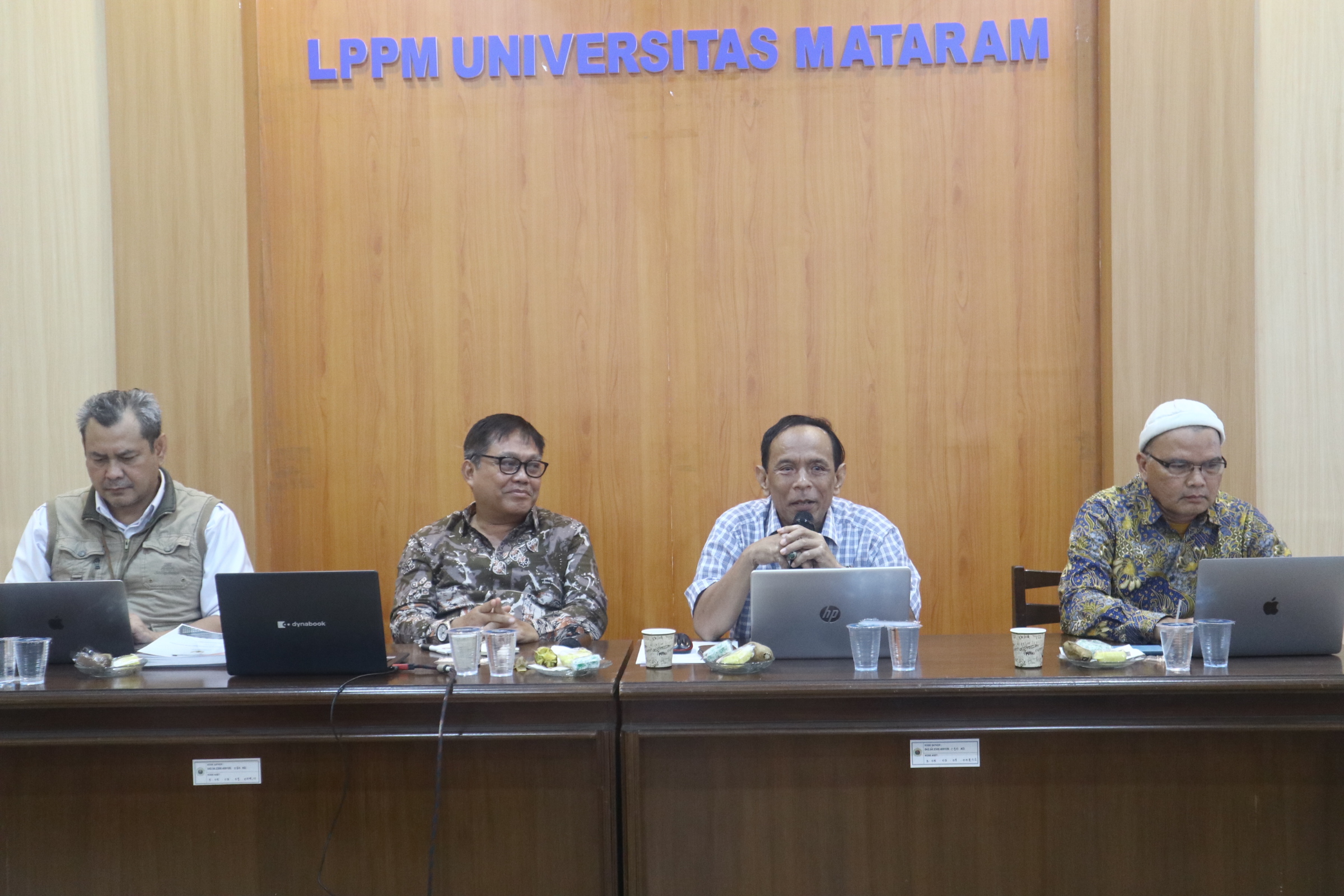LPPM Unram Holds Journal Management Workshop in accordance with Public Service Agency Rules

Mataram, University of Mataram – The Institute for Research and Community Service of the University of Mataram (LPPM Unram) held a Journal Management Workshop in accordance with BLU service rules. This activity took place in the LPPM Main Conference Room attended by 50 journal managers at the University of Mataram on Wednesday (31/1).
Unram is one of the leading BLU higher education institutions in West Nusa Tenggara (NTB). As an effort to encourage the development of research and scientific publications, Unram is active in managing and accrediting journals published by its faculties and research.
In this journal management workshop meeting, the Head of SPI Abdullah Zainuddin, S.T., M.T.; Head of LPPM Unram Prof. Dr. Ir. Sukartono, M.Agr. accompanied by Prof. Dr. Ir. I Gusti Putu Muliarta Aryana, MP. as Secretary of LPPM; Head of Publication, Conference and IPR Center Prof. Drs. Aris Doyan, M.Si., Ph.D.; and journal managers in Unram.
The ability to manage journal finances has a very important correlation with the achievement of journal accreditation, journal accreditation is currently important because of the rapid increase in performance in research outputs in the form of scientific publications both internationally and nationally accredited.
The success of improving the accreditation status of journals at Unram, through intensive journal governance workshops, has provided benefits in increasing the number of articles published in accredited national journals and indexed by Scopus and reducing the number of articles published in unaccredited journals.
Head of LPPM Unram Prof. Dr. Ir. Sukartono, M.Agr in his speech said, “The more indexed journals, of course, will have an impact on improving the quality of our research, service and education at Unram. Our target is to become an International Research University.”
Currently, Unram has 95 journals, with a total of 50 scientific journals that have been accredited by National/SINTA, and there is 1 Unram international journal that has been indexed by Scopus. Therefore, the Center for Publications, Conferences and IPR LPPM Unram continues to encourage the improvement of journal quality so that more Unram journals are indexed by Scopus. One form of effort in this case is by organizing intensive journal management assistance.
In the academic world, journal publications play an important role in disseminating scientific knowledge and advancing a particular discipline. For researchers and academics, it is important to choose the right journal to publish research results. One indicator of quality that is often used is the Scopus index. Getting Scopus indexed has a number of benefits for journals and researchers. First, being a Scopus-indexed journal increases the journal’s reputation. The Scopus index only includes journals with high quality and is rigorous in its selection. Therefore, Scopus-indexed journals are considered to have good writing standards and a rigorous peer review process.
In addition, becoming a Scopus-indexed journal can also increase circulation and readership. Many researchers and academics use the Scopus Index as their main reference source. By being indexed in it, journals have a greater chance of being discovered by researchers from different countries and institutions. This can increase the visibility of the research published in the journal.
Affirming this, the Head of the Center for Publications, Conferences and IPR Prof. Drs. Aris Doyan, M.Si., Ph.D., explained, “The expected target output of this intensive mentoring program is that journals that are considered quite ready for internationalization can optimize their management and programs to be better prepared to apply for Scopus indexation. The mentors will review the points that still need to be optimized to ensure that each journal is ready for Scopus indexation.”
The Journal Management and Capacity Building Workshop reflects LPPM Unram’s commitment to producing high-quality research and improving global reputation.
